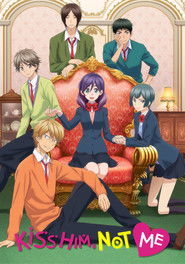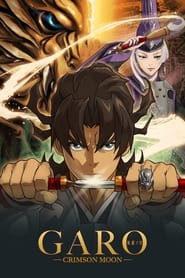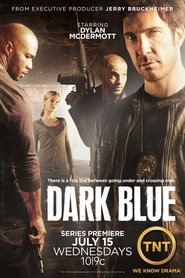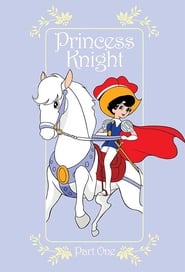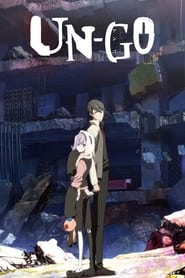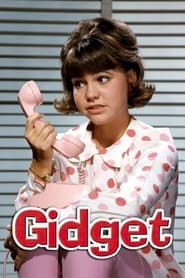Popular TV Series - Page 499
-
IDOL 1N2D
2022
-
Kiss Him, Not Me
2016
Kiss Him, Not Me
2016
star 8.4Kae Serinuma is a second year high school student and an avid fujoshi who secretly ships her classmates, Igarashi and Nanashima. The death of her favorite anime character causes her to become stressed and lose weight rapidly. Now that Serinuma has become an attractive girl to her classmates, snarky junior Shinomiya and senior Mutsumi, how is she going to deal with them with her constant BL-filled fujoshi mind? -
Garo: Crimson Moon
2015
Garo: Crimson Moon
2015
star 6Heian-kyō, capital and the center of elegant, aristocratic culture, is heavily guarded by a spiritual force field -- or so it seems. In reality, onmyōji (court magi who create the spiritual force field) can only defend the palace located in the northern part of the city; in downtown, monsters known as "horror" that feast upon human souls roam after sunset. There are, however, a group of heroes protecting commoners from "horrors" in darkness. -
The Gift
2019
The Gift
2019
star 7.3A painter in Istanbul embarks on a personal journey as she unearths universal secrets about an Anatolian archaeological site and its link to her past. -
Hart aber fair
2001
-
Dark Blue
2009
Dark Blue
2009
star 6.9Wandering in and out of he underbelly of Los Angeles, where criminals roam free under the veil of night or hide in the shadows of day, is routine for Lieutenant Carter Shaw and his special undercover task force. This team understands that to bring down a criminal, one must first get on their level. -
Well, Just You Wait!
1969
Well, Just You Wait!
1969
star 8Follows the comical adventures of a mischievous yet artistic wolf [Volk], trying to catch a hare [Zayats]. The series has additional characters that usually either help the hare or interfere with the wolf's plans. -
The Brainiacs
2015
The Brainiacs
2015
star 8Traditionally, the cast is given clues to guess the identity of the episode's guests, and once the guests appear and are introduced, they and the cast are given a set of puzzles to solve. -
Auf Achse
1980
-
Quack Pack
1996
Quack Pack
1996
star 6.9This cartoon follows on from the 1980’s cartoon “Ducktales”, continuing the adventures of Huey, Dewey and Louie. Now 12 year olds and living with their uncle Donald Duck, the three spend their time playing practical jokes on their hapless uncle and otherwise getting into trouble. -
Princess Knight
1967
Princess Knight
1967
star 8.2Princess Sapphire is a girl raised as a Prince. Through the mischief of an angel, the princess is born with both a girl's and a boy's heart. Since there is no boy successor in her kingdom, Sapphire is raised as a boy, but evil ministers try to reveal her secret. Unable to put up with the kind of vicious conduct prevailing in the kingdom, Sapphire disguises herself as "Princess Knight" and wields her sword of justice. -
Kate Garraway's Life Stories
2009
star 5.9Celebrities open up to Kate Garraway in intimate and moving interviews. -
Pee-wee's Playhouse
1986
Pee-wee's Playhouse
1986
star 7.1Join Pee-Wee Herman and his friends Chairry, Miss Yvonne, Cowboy Curtis, Jambi the Genie and others as they play around in Pee-Wee's magical Playhouse! -
Un-Go
2011
Un-Go
2011
star 6.5Un-Go is set in a war-torn Tokyo, in a near-future Japan. In response to Japan sending their military abroad as peacekeeping forces, terrorists launched multiple attacks on Japan, killing many people and destroying much of its cityscapes. Some time after the war receded to a period of uneasy peace, the Japanese Parliament passed the "Information Privacy and Protection Act", which gives the Japanese government control over the Internet. Detective Shinjuurou Yuuki and his strange partner Inga make a living in solving crimes and exposing human souls, all influenced in some way by the dystopian backdrop. -
Gidget
1965
Gidget
1965
star 6.6Gidget is an American sitcom about a surfing, boy-crazy teenager called "Gidget" and her widowed father Russ Lawrence, a UCLA professor. Sally Field stars as Gidget with Don Porter as father Russell Lawrence. The series was first broadcast on ABC from September 15, 1965 to April 21, 1966. Gidget was among the first regularly scheduled color programs on ABC, but did poorly in the Nielsen ratings and was cancelled at the end of its first season. -
Ámbar
2016
Ámbar
2016
star 2Ambar’s school bus driver becomes an important role model for her. He also makes a lasting impression on her mother... -
KADO: The Right Answer
2017
star 7.8Kōjiro Shindō is a highly-skilled negotiator working for the Ministry of Foreign Affairs. As his plane at Haneda airport prepares to take off, a huge mysterious cube appears from the sky. 'It' expands rapidly, and absorbs the passenger plane and its 252 passengers. The cube's name is "Kado". A strange being called Yaha-kui zaShunina appears from within Kado and tries to make contact with humanity. Shindō, who was been absorbed by Kado, ends up taking on the role of mediator between Yaha-kui zaShunina and humanity. The Japanese government sends its own negotiator, Saraka Tsukai. -
Rascal the Raccoon
1977
Rascal the Raccoon
1977
star 6.4The story is set in 1914 in Breisford in Wisconsin, near Lake Koshgonong. One spring day the little Sterling finds in the forest a raccoon cub whose mother has just been killed by a hunter; He decides to treat him and keep him by giving him the name Rascal. The boy and the raccoon become inseparable friends from that day, although Sterling soon realizes, after a series of small disasters that Rascal causes in the gardens of neighbors, that cohabitation between men and wild animals can sometimes be very difficult . Thus began the last unforgettable year of Sterling childhood, punctuated by small and big adventures with its large Rascal friends, Oscar and Alice among the animals she loves so much, but marked by the death of the mother and the financial ruin of the father who lost almost all that he has to repay debts. -
The Journey of Allen Strange
1997
star 8A humorous yet empathetic look at what would happen if an alien, lost and far from home, were to take on the form of an Earthbound teenage boy.
 Netflix
Netflix
 Amazon Prime Video
Amazon Prime Video
 Apple iTunes
Apple iTunes
 Apple TV Plus
Apple TV Plus
 Disney Plus
Disney Plus
 Google Play Movies
Google Play Movies
 Paramount Plus
Paramount Plus
 Hulu
Hulu
 HBO Max
HBO Max
 YouTube
YouTube
 fuboTV
fuboTV
 Peacock
Peacock
 Peacock Premium
Peacock Premium
 Amazon Video
Amazon Video
 The Roku Channel
The Roku Channel
 AMC+
AMC+
 AMC on Demand
AMC on Demand
 Kocowa
Kocowa
 Hoopla
Hoopla
 The CW
The CW
 Vudu
Vudu
 Starz
Starz
 Showtime
Showtime
 PBS
PBS
 Pantaflix
Pantaflix
 FXNow
FXNow
 Tubi TV
Tubi TV
 Kanopy
Kanopy
 Comedy Central
Comedy Central
 Crunchyroll
Crunchyroll
 Microsoft Store
Microsoft Store
 Redbox
Redbox
 Sun Nxt
Sun Nxt
 ABC
ABC
 DIRECTV
DIRECTV
 Crackle
Crackle
 Fandor
Fandor
 Plex
Plex

